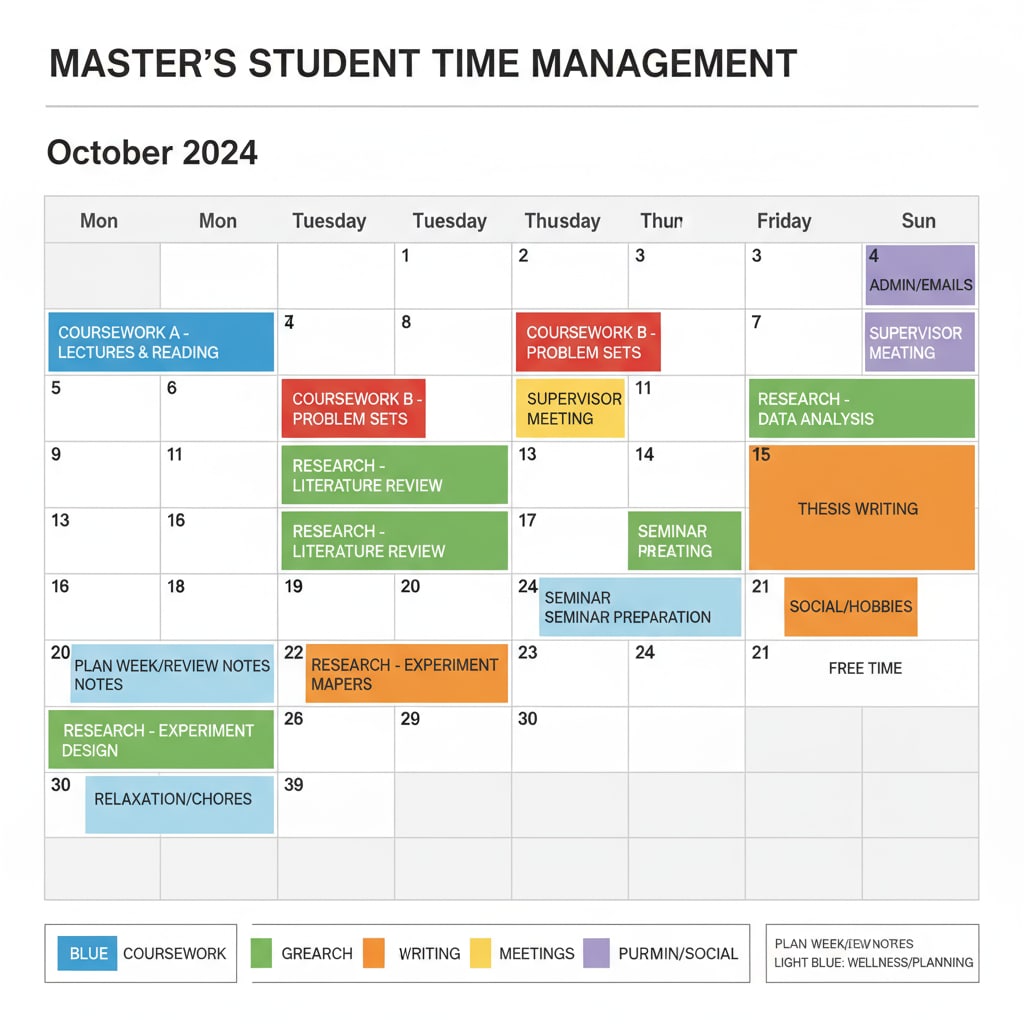Master’s degree, workload, stress management are crucial aspects for every student pursuing a higher education. The journey of obtaining a master’s degree is filled with challenges, especially when it comes to managing the workload and associated stress. For those about to embark on a Master of Arts in English Literature and Creative Writing, these challenges can seem overwhelming. However, with the right strategies, it’s possible to navigate through this journey with grace and achieve a balance between academic pursuits and personal life.

Understanding the Workload
The workload in a master’s program is significantly heavier compared to undergraduate studies. In a master’s degree, you’re not just expected to attend regular classes but also engage in in-depth research, write extensive papers, and participate in seminars. For example, in the field of English Literature and Creative Writing, students may need to analyze complex literary works, conduct independent research, and produce high-quality creative pieces. This requires a substantial amount of time and effort. According to Oxford University’s graduate admissions page, master’s students often have to manage multiple projects simultaneously, which can be quite daunting.
Time Management Strategies
One of the keys to managing the workload and stress is effective time management. Create a detailed schedule that includes dedicated time for classes, study, research, and relaxation. For instance, set aside specific hours each day for reading assigned materials, working on assignments, and attending discussions. Use tools like calendars and to-do lists to stay organized. Additionally, break down large tasks into smaller, manageable steps. This way, you won’t feel overwhelmed by the sheer volume of work. As Britannica states, proper time management can enhance productivity and reduce stress.

Another important aspect is prioritization. Determine which tasks are most urgent and important and focus on those first. Don’t be afraid to say no to non-essential activities that may eat up your time. This will help you allocate your time and energy more effectively.
Building a Support System
Having a strong support system is essential for managing stress during your master’s degree. Connect with your fellow students, professors, and academic advisors. They can offer valuable insights, advice, and support. For example, forming study groups with classmates can help you discuss difficult concepts, share resources, and stay motivated. Professors and advisors can provide guidance on your research, offer feedback on your work, and help you navigate through any academic challenges you may face.
Family and friends also play a crucial role in your support system. Share your experiences and feelings with them. They can offer emotional support and help you take a break from your studies when needed. Remember, it’s important to have people in your life who can remind you that there’s more to life than just academics.
Self-Care and Stress Relief
Taking care of yourself is vital for maintaining your physical and mental health during this demanding journey. Make sure to get enough sleep, eat a balanced diet, and engage in regular physical activity. Exercise, in particular, is a great way to relieve stress and boost your mood. For example, going for a jog, practicing yoga, or playing a sport can help you clear your mind and recharge your energy.
Engage in activities that you enjoy outside of academics. This could be reading for pleasure, listening to music, or spending time with loved ones. These activities can provide a much-needed break from the stress of your master’s degree workload and help you maintain a healthy perspective.
Readability guidance: By following these strategies for understanding the workload, managing time, building a support system, and practicing self-care, you can effectively manage the stress associated with your master’s degree. Remember, the journey may be challenging, but with the right approach, you can achieve academic success while maintaining a balanced and fulfilling life.


